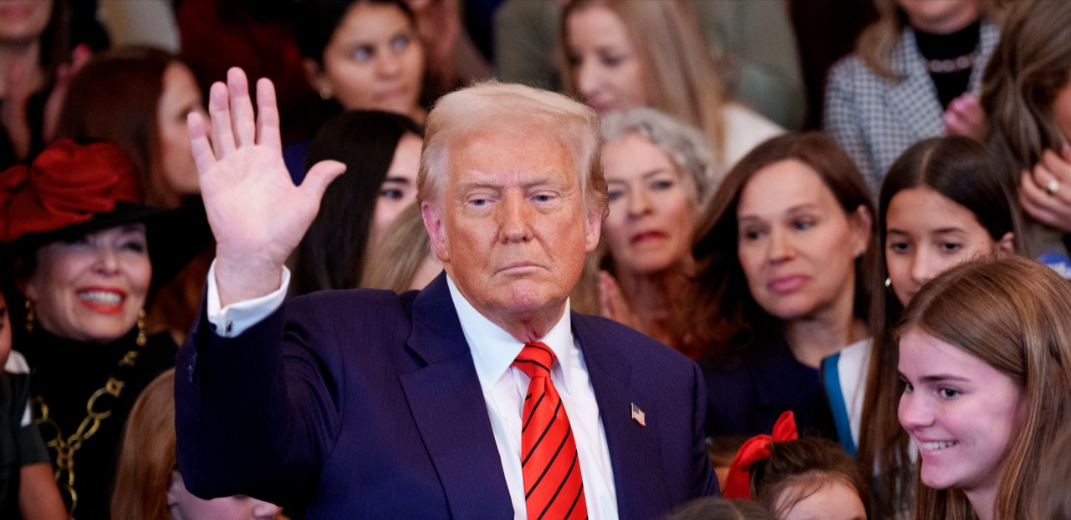President Trump’s Approval Rating Gets Triple Boost

President Donald Trump’s approval rating has remained steady and in positive territory exactly one month after assuming office, despite the swift implementation of his policy agenda.
Recent surveys have recorded Trump’s approval rating at or above 50 percent, according to Newsweek, which noted that the "surveys suggest that most Americans approve of the job the president is doing, despite other polls indicating that Trump’s favorability ratings have declined since his first few days back in office."
A SurveyUSA poll, which included 2,000 adults, found that 51 percent of respondents approve of Trump’s performance as president, whereas 45 percent disapprove. This results in a net approval rating of +6 points.
When examining responses by region, the poll indicates that Trump’s support is strongest in rural areas, where 59 percent approve of his job performance. In comparison, approval is slightly lower in suburban areas at 48 percent and urban areas at 51 percent.
Conducted between February 13 and 16, the SurveyUSA poll has a margin of error of plus or minus 2.6 percentage points.
Another survey, the Morning Consult poll, released on Tuesday, found that 50 percent of voters approve of Trump’s presidency, while 47 percent disapprove, as reported by Newsweek.
Eli Yokley, a U.S. politics analyst for Morning Consult, along with Cameron Easley, head of U.S. political analysis, highlighted in their assessment that Trump’s approval rating has "stabilized" after experiencing three consecutive weeks of decline.
"The president’s approval and favorability ratings have stabilized following three straight declines week over week. Voters are slightly more likely to approve than disapprove of Trump’s job performance, 50% to 47%, and slightly more likely to view him unfavorably than favorably on a personal level, 49% to 48%," Yokley told Newsweek. "Both figures represent marginal improvements from last week’s update and are similar to his numbers at the same point in his first term in office."
The Morning Consult poll surveyed 2,217 registered voters between February 14 and 16.
Additionally, a study conducted by a Republican-affiliated polling firm showed that Trump continues to maintain a strong approval rating.
A survey conducted by Napolitan News, led by Scott Rasmussen and RMG Research, reported Trump’s approval rating at 55 percent, with 43 percent disapproving, giving him a net approval rating of +12 points, Newsweek reported.
Trump’s approval rating within this polling group has consistently remained above 50 percent since he returned to the White House on January 20, peaking at 57 percent during his inauguration week.
The Napolitan News poll gathered responses from 3,000 registered voters between February 10 and 14, with a margin of error of plus or minus 1.8 percentage points.
RMG Research, established by pollster Scott Rasmussen, is the organization behind the survey. Rasmussen is also known for founding Rasmussen Reports.
"It’s not terribly uncommon for Americans to hold slightly different views of public officials as people (favorability) versus their performance of the job (approval)," Chris Jackson, senior vice president of U.S. public affairs at Ipsos, previously told Newsweek.
"What we’ve heard in some qualitative research is there is a small but real group of Americans who do not personally like President Trump or his behavior, but they think he is the right person for the job or the moment," he added.
Meanwhile, a notable shift is underway regarding how major corporations approach and fund Diversity, Equity, and Inclusion (DEI) programs—an issue Trump campaigned on before defeating now-former Vice President Kamala Harris.
Last month, Trump accelerated this change by issuing an executive order that dismantled DEI policies and staffing within the federal government and extended the prohibition to federal contractors, The Center Square reported.
Some private corporations had already begun reducing their DEI initiatives prior to Trump’s return to office. However, following his directive, many companies have started pulling back from their DEI commitments—at least symbolically—even if significant internal changes remain limited, the outlet further noted.
Businesses that continue to uphold DEI-based hiring practices now face an unpredictable legal environment, the report concluded.